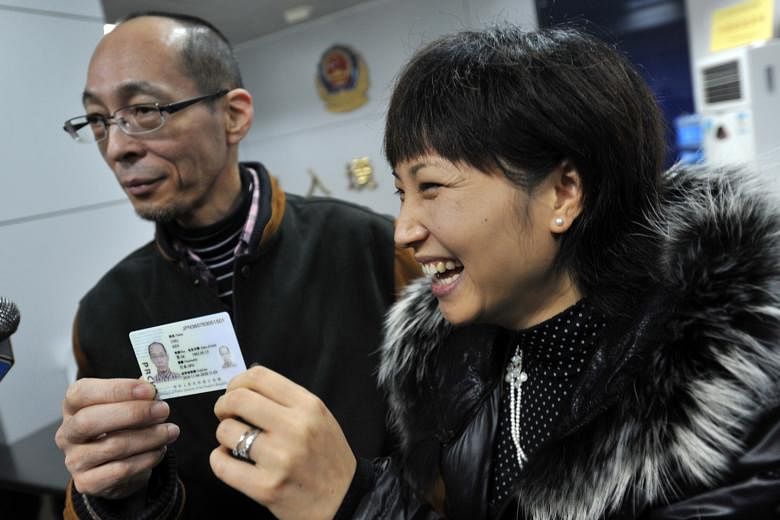China is stepping up its game in the battle for global talent and investment with plans to make it easier for foreigners to obtain permanent residency (PR) status as growth in the world's No. 2 economy sputters.
The application process will be made "simpler" with "more flexible, pragmatic and market-oriented" rules, according to a circular by the Communist Party's Central Committee and the State Council. More industries will also be included in the scheme.
"Since the launch of the green card policy in 2004, it has contributed a lot to China's development," the directive said. "However, it has still lagged behind practical needs due to many disadvantages, including application requirements that are too high and too narrow in scope in issuing green cards."
China's PR permit, which was introduced in 2004, is widely thought to be one of the world's most elusive. Only foreigners who worked in government departments or laboratories of "key national projects" are allowed to apply for it.
Last June, however, the rule was relaxed to include researchers at more institutes, including those with international funding.
The announcement on Thursday expands this further: Foreigners from "different industries" will also be eligible to apply, the circular said, without saying which ones.
Foreign investors keen on applying for PR will also likely have a lower threshold to meet under "pro-active" investment-based immigration policies. The minimum investment amount or timeframe, for instance, will be "adjusted flexibly" according to the needs of the economy, it added. Further details are expected in the coming months.
State Administration of Foreign Experts Affairs spokesman Gao Xiang said it highlights the role of the market in global talent recruitment: "More market factors would be taken into consideration when reviewing the candidates, such as salary, taxation and social credit."
PR status allows foreigners equal treatment as Chinese citizens. They can enter China without a visa and can invest, drive and enrol their children in schools without requiring further approvals or extra fees.
According to the Ministry of Public Security, more than 7,300 foreigners had obtained PR by 2013, a tiny fraction of the more than 600,000 foreigners living in China.
Already, cities like Beijing and Shanghai have introduced similar schemes. From March 1, Beijing will allow foreigners meeting income and tax thresholds to apply for PR. Ethnic Chinese who hold PhDs or have worked for at least four years at the Zhongguancun high-tech park in the capital will also qualify.
But foreigners whom The Straits Times spoke to remain sceptical, pointing to the scant details and lack of social security services.
"You consider the benefits when deciding whether to apply for PR, and in China's case, there's not much," said Beijing-based Singaporean lawyer Charlene Lim, 33. "Its social security system such as healthcare is not great. You'll still need your own medical insurance."
Briton Christina Chiang, 27, who works in finance, said tax implications and other liabilities would affect her decision. "It depends on the details - whether the benefits outweigh the costs. Many foreigners working in China enjoy benefits such as private medical insurance, company-sponsored children's education and other perks which local employees do not have," she added.
China taxes citizens on their global incomes. The top income tax bracket is 45 per cent.
But Mr Malcolm Nerva, 40, a Singaporean who runs a consultancy in Beijing and has lived in China for 13 years, said he will be asking his lawyers for advice.
"The ease of entry appeals to me," he said. "With PR status, I can skip the Chinese bureaucracy such as having to renew my visa every year."

